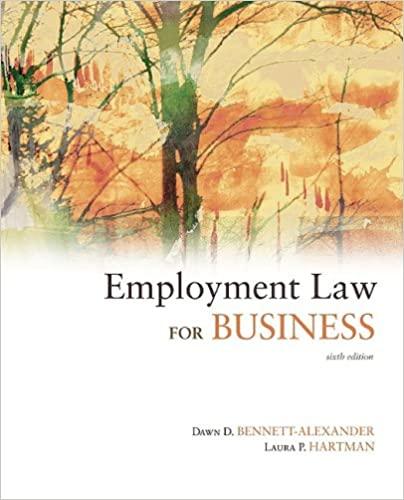Question
Your textbook proposes the following: The law does not impose on us a duty to care for every person. If the rule were otherwise, we
Your textbook proposes the following: "The law does not impose on us a duty to care for every person. If the rule were otherwise, we would all, in this interdependent world, be our brothers' keepers, constantly unsure whether any action we took might subject us to liability for its effect on someone else. The law copes with this difficulty by limiting the number of people toward whom we owe a duty to be careful. The general rule is this: We owe a duty to be careful toward other people if it is reasonably foreseeable that whatever we are planning to do might cause harm to others."[1]
Simply put, tort law is designed to avoid harm that is otherwise foreseeable. As members of society, we should, and are expected to, act in such a way as to prevent causing injury to another person. However, accidents do happen, and, in more specific circumstances, people actually intend to risk injury or intend to cause injury. Rarely, however, does tort law serve to punish or restrict speech. When speech has been deemed to "incite violence or imminent danger," it can raise a cause of action against the person who spoke, but what if the speech "hurts" even if it doesn't do those things. Should "harmful" speech be actionable? Should we be able to seek damages from a person who negligently, or even intentionally, hurts our feelings or made us feel bad about ourselves? Why or why not? What do you think?
Step by Step Solution
There are 3 Steps involved in it
Step: 1

Get Instant Access to Expert-Tailored Solutions
See step-by-step solutions with expert insights and AI powered tools for academic success
Step: 2

Step: 3

Ace Your Homework with AI
Get the answers you need in no time with our AI-driven, step-by-step assistance
Get Started


